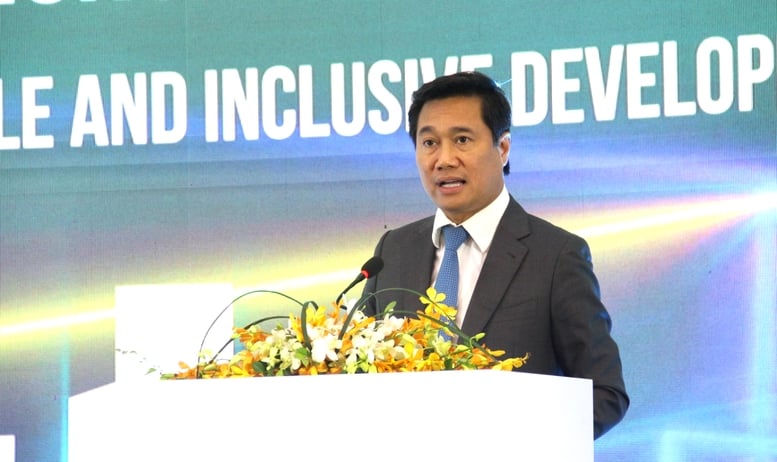
Deputy Minister of Construction Nguyen Tuong Van - Photo: VGP/PT
On November 5, the Ministry of Construction and the Central Committee for Strategic Policy co-chaired the Vietnam Urban Sustainable Development Forum 2025 with the theme "Developing smart, sustainable and inclusive Vietnamese cities".
Deputy Minister of Construction Nguyen Tuong Van acknowledged: Vietnam's urban system has been playing a driving role in the process of building and developing the country. In 2022, the Politburo gave very specific instructions in Resolution No. 06-NQ/TW on planning, construction, management and sustainable development of Vietnam's urban areas.
In addition to the achievements, Vietnam's urban system is having to deal with major challenges such as rapid but uneven urbanization; pressure on technical - social infrastructure, environment and housing; impacts of climate change, natural disasters, epidemics; requirements to transform development models based on innovation and digital data...
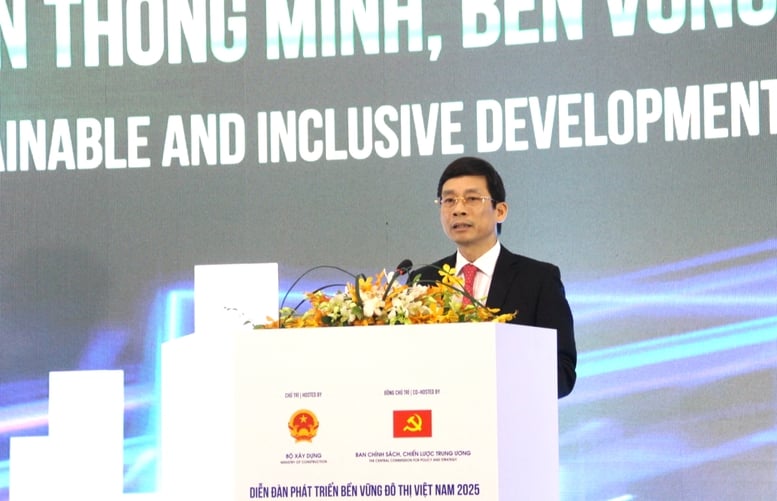
Mr. Nguyen Duy Hung, Deputy Head of the Central Strategic Policy Committee, emphasized that urban areas are particularly important spaces and driving forces in socio -economic development.
The situation of "suspended planning" is still common in many urban areas.
Mr. Nguyen Duy Hung, Deputy Head of the Central Strategic Policy Committee, also pointed out that Vietnam's urban system still has some limitations that have not been completely overcome, such as overlapping planning; the urban system lacks connectivity; central cities have not yet played their leading and connecting role; the quality of development between cities is not uniform; infrastructure has not kept up with the speed of urbanization; traffic congestion, flooding, lack of waste and wastewater treatment systems, etc. have not been completely resolved.
"The situation of "suspended planning" and "suspended projects" is still quite common in many urban areas, affecting people's lives and wasting social resources. Planning, infrastructure, and resilience to natural disasters, extreme weather, and climate change are still weak," Mr. Hung pointed out.
In that situation, Mr. Hung said that perfecting the institutions for smart, sustainable and inclusive cities is a breakthrough task. Urban planning also needs to be adjusted to suit the 2-level local government model, to ensure consistency and efficiency in management. At the same time, Vietnam must also promote the development of a healthy real estate market, solve people's housing needs, and simultaneously handle long-standing problems; strongly promote the application of science, technology, innovation and digital transformation.
Streamlining the apparatus, expanding development space
Commenting on the revolution in administrative organization, regional and urban development, bringing new opportunities, but also many new challenges and tasks, Mr. Tran Quoc Thai, Director of the Department of Urban Development (Ministry of Construction) said that 2025 is a special milestone in the development process of Vietnam's urban system.
"After the reorganization, the whole country reduced from 63 provincial-level units to 34 units, including 28 provinces and 6 centrally-run cities. At the grassroots level, from more than 10,000 communes, wards and towns, it was reduced to 3,321 administrative units, including 2,621 communes, 687 wards and 13 special zones.
This reorganization of administrative space not only streamlines the apparatus, but also opens up space for urban-rural development. Many localities have formed provinces and cities with regional scale," Mr. Thai pointed out.
According to Mr. Thai, to innovate urban development, it is necessary to continue to improve the legal system on urban planning, construction, management and development; adjust the planning of urban-rural systems and construction; Build a national database on urban development, connect with land, population, investment and infrastructure databases; Promote international cooperation to develop green economy, digital economy, share experiences in TOD planning, low-carbon urban development and smart infrastructure; Strengthen urban management capacity at all levels, train a team of managers with integrated thinking, digital capacity, inter-sectoral coordination ability, effectively serve the two-level government model.
Speaking at the forum, Mr. Thomas Gass, Ambassador Extraordinary and Plenipotentiary of the Swiss Confederation to Vietnam, stated: Urbanization is currently a key driving force for Vietnam's economic growth, with cities contributing over 70% of the country's GDP. However, if not managed effectively, the urbanization process can increase pressure on infrastructure.
"Strong institutions are the foundation for sustainability. Data helps shape strategies and make policies transparent. People are the deciding factor for the success of any reform. Integrated development between housing, transport, energy, water and land is key and innovation must be inclusive, so that technology serves people and narrows the gap," said Mr. Thomas Gass.

If not managed effectively, urbanization can increase pressure on infrastructure.
Mariam Jeanette Sherman, World Bank Country Director for Vietnam, Cambodia and Laos, said: “The restructuring of the administrative apparatus gives localities a wider scope of management, stronger financial capacity and more authority in planning and infrastructure investment. This opens up opportunities but also requires that investments be consistent with national orientation and the goal of enhancing economic resilience.”
Storms, floods, saltwater intrusion and landslides cause huge losses every year. Many infrastructure systems are no longer able to cope with current weather conditions. Therefore, investment in resilient urban infrastructure is urgently needed.
"The World Bank and its partners are committed to continuing to support Vietnam in mobilizing resources, sharing international experiences and implementing effective solutions to help Vietnamese cities develop resiliently, competitively and sustainably in the future," said Ms. Mariam Jeanette Sherman.
Listening to the opinions of the delegates, Deputy Minister of Construction Nguyen Tuong Van said: The Ministry of Construction will continue to work with ministries, branches and localities to continue to make efforts to synchronously deploy tasks and solutions, focusing on perfecting institutions and policies for sustainable urban development; reviewing and adjusting urban-rural system planning and construction.
In addition, the Ministry of Construction continues to focus on the following task groups: Building a national urban data platform; Promoting green cities, smart cities and resilience to climate change; Developing human resources and urban innovation ecosystem.
Phan Trang
Source: https://baochinhphu.vn/phat-trien-do-thi-xanh-co-kha-nang-chong-chiu-voi-bien-doi-khi-hau-102251105193506681.htm





![[Photo] Opening of the 14th Conference of the 13th Party Central Committee](https://vphoto.vietnam.vn/thumb/1200x675/vietnam/resource/IMAGE/2025/11/05/1762310995216_a5-bnd-5742-5255-jpg.webp)






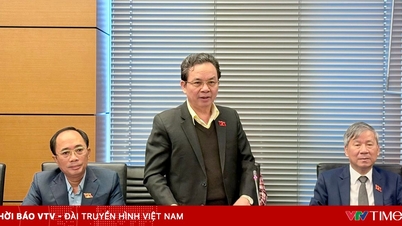

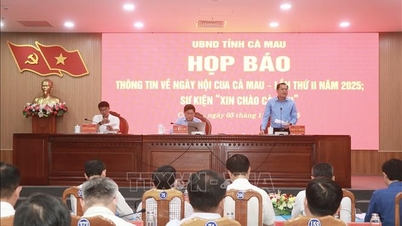






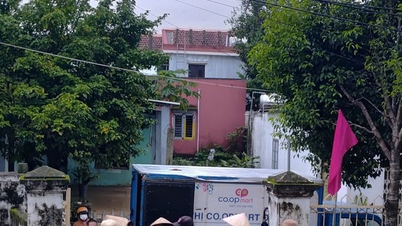
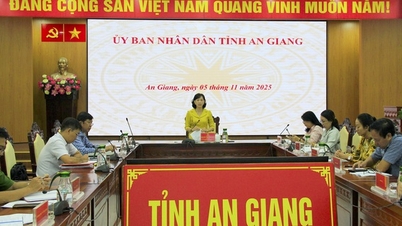
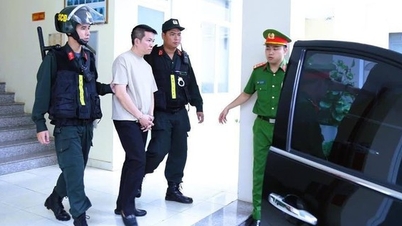
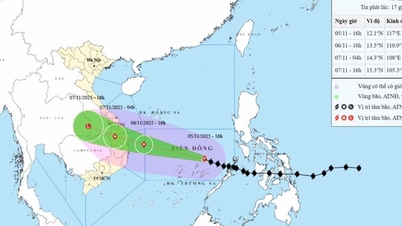


![[Photo] Panorama of the Patriotic Emulation Congress of Nhan Dan Newspaper for the period 2025-2030](https://vphoto.vietnam.vn/thumb/1200x675/vietnam/resource/IMAGE/2025/11/04/1762252775462_ndo_br_dhthiduayeuncbaond-6125-jpg.webp)




































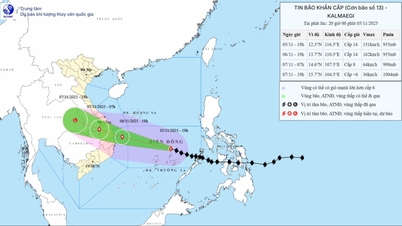













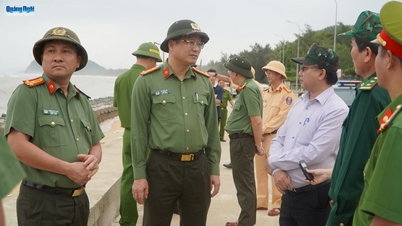
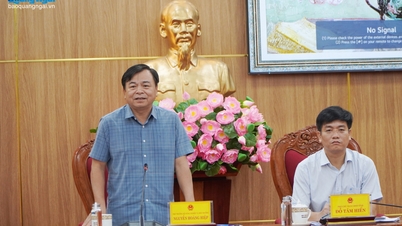





















Comment (0)